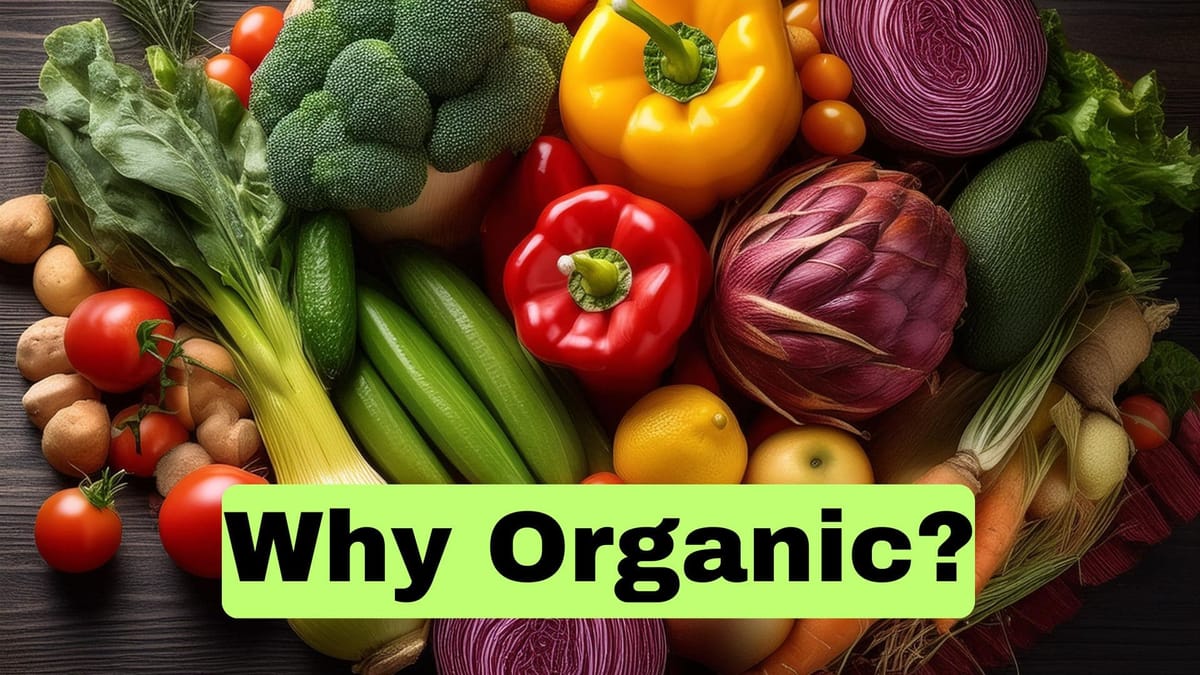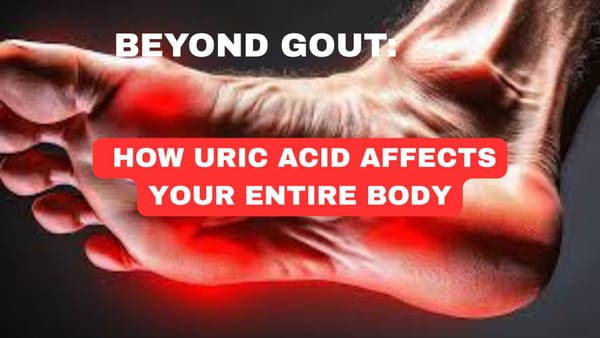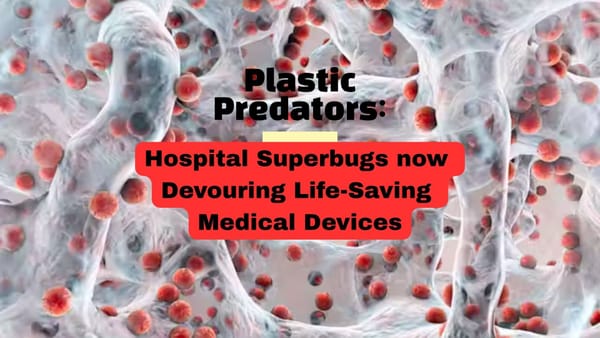Why Organic? A Step Towards a Healthier Future
Organic strawberries have small bugs chewing on the plants that increase the bioactive acids The science shows these strawberries have 3x the nutritional value.

An internet search on this subject surprised me. Many medical websites do not recognise that eating organic whole foods is necessarily more nutritious than conventionally grown foods. Although there is an acknowledgement that there is lower pesticide and antibiotic exposure, several medical platforms state that there is insufficient evidence to conclude any real health benefits. This is likely due to a lack of scientific studies on this topic.
However, according to Healthline, a site that provides detailed information and sources, organic foods are becoming increasingly popular in the United States. Some people believe that organic food is safer, healthier and tastier than conventionally grown food, and others choose it because it is better for the environment and the well-being of the animals.
In this article we look at some of the pros and cons of the health platform's research before we read what a popular scientist has to say.
The term “organic” refers to how certain foods are produced. Organic foods have been grown or farmed without the use of:
- artificial chemicals
- hormones
- antibiotics
- genetically-modified organisms (GMOs)
To be Organic, a food product must be free of artificial food additives. This includes artificial sweeteners, preservatives, colouring, flavouring, and monosodium glutamate (MSG).
Organically grown crops use natural fertilizers like manure to improve plant growth. Animals raised organically are not given antibiotics or hormones.
Organic farming tends to improve soil quality and the conservation of groundwater. It also reduces pollution and may be better for the environment.
The most commonly purchased organic foods are fruits, vegetables, grains, dairy products and meat. Processed organic products are also available, however, not recommended.
tudies comparing the nutrient content of organic and non-organic foods have had mixed results for various reasons:
- Organically grown crops have more antioxidants and vitamins. Several older studies found that organic foods generally contain higher levels of antioxidants and certain micronutrients, such as vitamin C, zinc, and iron (antioxidant levels can be up to 69% higher in these foods)
- Organically grown berries and corn contained 58% more antioxidants and up to 52% higher amounts of vitamin C
- One study reported that replacing regular fruit, vegetables and cereals with organic versions could provide additional antioxidants. This was comparable to eating 1–2 extra portions of fruit and vegetables daily
- Organic plants do not rely on chemical pesticide sprays to protect themselves. Instead, they produce more of their own protective compounds, namely antioxidants (this fact is confirmed in Dr Li's information below)

- While several studies find that organic foods can have significant positive outcomes, others have found insufficient evidence to recommend organic over conventional
- An observational study comparing the nutrient intakes of nearly 4,000 adults consuming either organic or conventional vegetables found conflicting results
- Although a slightly higher intake of certain nutrients was seen in the organic group, this was most likely due to higher overall vegetable consumption
- A review of 35 studies found some positive outcomes associated with organic food but couldn’t draw any definitive conclusion
- Another review of 233 studies found a lack of strong evidence to conclude that organic foods are more nutritious than regular foods
it is important to remember that these studies vary widely in their results. This is because the nutrient content of food depends on many factors, such as soil quality, weather conditions, and when the crops are harvested.
The composition of dairy products and meat can be affected by differences in animal genetics and animal breed, what the animals eat, the time of year, and the type of farm.
The natural variations in the production and handling of foods make comparisons difficult. That’s why the results of these studies aren’t conclusive.
- Nitrate levels are generally lower: organically grown crops show 30% lower levels. (High nitrate levels are associated with an increased risk of certain types of cancer as well as a condition called methemoglobinemia, a disease in infants that affects the body’s ability to carry oxygen)
- Organic dairy and meat may have a more favourable fatty acid profile: Organic milk and dairy products may contain higher omega-3 fatty acids and slightly higher amounts of iron, vitamin E, and some carotenoids. However, organic milk may contain less selenium and iodine than non-organic milk. These are two minerals that are essential for health. A review of 67 studies found that organic meat contained higher omega-3 fatty acids and slightly lower levels of saturated fats than conventional meat. A higher intake of omega-3 fatty acids has been associated with many health benefits, including a reduced risk of heart disease.
- Fewer Chemicals and Resistant Bacteria: Many people buy organic food to avoid artificial chemicals. Evidence suggests that consuming these foods may reduce exposure to pesticide residues and antibiotic-resistant bacteria. One study found that levels of cadmium, an extremely toxic metal, were 48% lower in organic produce. In addition, pesticide residues were four times more likely to be found in non-organic crops. (Note that higher levels of cadmium and pesticide residue in conventionally grown produce were still well below safety limits).
- Antibiotics and/or Synthetic Hormones: we are under a constant assault from toxins, antibiotic-fed products, chemicals, and so much more. You have a better chance of avoiding these by eating organic foods. The food we eat, air we breathe, and water we drink are all contaminated on one level or another. In many cases, the best we can do is minimize our exposure.
- Preserve the Ecosystem: you can look to organic farming as a means of supporting good eco-sustenance practices. This can also be farming that maintains a mutually beneficial harmony with nature.
- You Get to enjoy Better-Tasting Food: this is one of the most appealing ways to get you to your local organic food store. While it is important to maintain a good, mutually beneficial relationship with our ecosystems and planet, it also helps to remember that organic food tastes better than the synthetic/chemical-laden counterparts.
- More expensive
- Limited shelf life
- Limited choice of products
- Fewer convenience foods are organic
For those of you who have not heard of Dr Li, the following is an introduction to this doctor and scientist:
William Li, MD, is a physician, scientist and the New York Times bestselling author of “Eat to Beat Your Diet: Burn Fat, Heal Your Metabolism, and Live Longer” and “Eat to Beat Disease: The New Science of How Your Body Can Heal Itself.” His groundbreaking work has led to the development of more than 40 new medical treatments and impacts care for more than 70 diseases including cancer, diabetes, blindness, heart disease and obesity. His TED Talk, “Can We Eat to Starve Cancer,” has garnered over 5 million views. Dr Li is president and medical director of the Angiogenesis Foundation.
In a YouTube podcast entitled, "Ïs Organic Really Better?” - The Surprising Truth Nobody Shares, Dr Li was questioned on the subject and shared the following information:
At the outset, he admitted to being initially sceptical about paying higher prices for organic, whole foods until he heard about a study done in England by a Horticultural Group. The research appeared in a Nature Journal and concerned a comparison between the bioactives of organic strawberries and conventional strawberries.
Having thin skin, pests and pesticides can penetrate these delicious berries that cannot easily be peeled. The ellagic and other acids which give the berries their slightly tart/sweet flavour, are powerful antioxidants and cancer fighters. They can cut off the blood supply to cancers in our bodies, reduce inflammation and even stimulate your stem cells to repair your organs. Isn’t this incredible? The result of this research is even more amazing….the organically-grown strawberries have small bugs chewing on various parts of the plants, that increase the bioactive acids (the healthy compounds) in the plants three-fold! The science showed that the organic strawberries had three times as much nutritional value due to the action of these small bugs. Why is this? The ellagic acid is Mother Nature’s natural insecticide and, as a result of the bugs chewing on the plant’s fruit, stem and leaves, the plant releases more natural insecticide that ultimately makes organic strawberries highly nutritious.
It is interesting to note that very often, organic fruit and vegetables do not look as 'healthy' or appealing as conventional fruit and vegetables. Now we know for sure that they are more nutritious. According to Dr Li, this same principle applies to other fruits, like peaches and others, as well as coffee beans.
Dr Li explained that the gut microbiome has 39 trillion bacteria, most of which live in the lower end of our gut, called the cecum - a pouch connecting the small intestine to the colon.
Most of the bacteria we encounter in our lives are inside our bodies. They eat the food we don’t digest – we absorb the glucose and other nutrients, but the fibre trickles down the 40 feet of intestines, to the cecum, where it is ‘eaten’ by the bacteria. In payback for feeding them, they produce anti-inflammatory metabolites - short-chain fatty acids that promote healing, streamline our blood lipids, and improve our insulin sensitivity so the fuel is more rapidly absorbed into the bloodstream.
We generally feed our gut microbiome three times a day with good, whole foods and our reward for that is good health.
What about foods laden with Synthetic Chemicals?
We absorb very little from these no-calorie foods, so our gut bacteria eat them, and the result is that we become ill.






